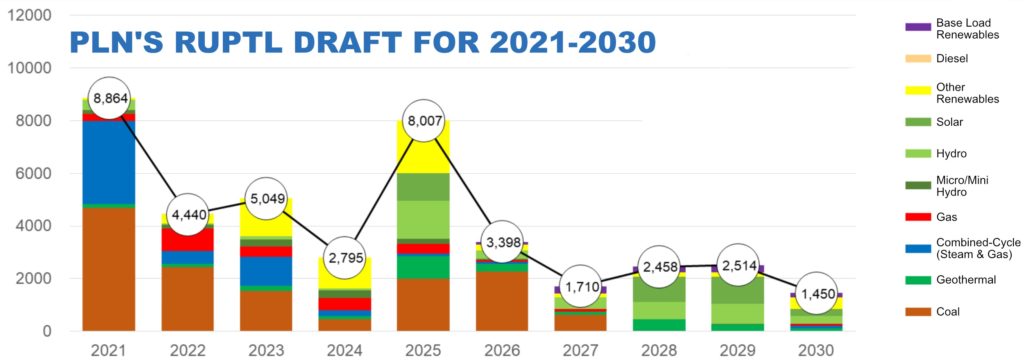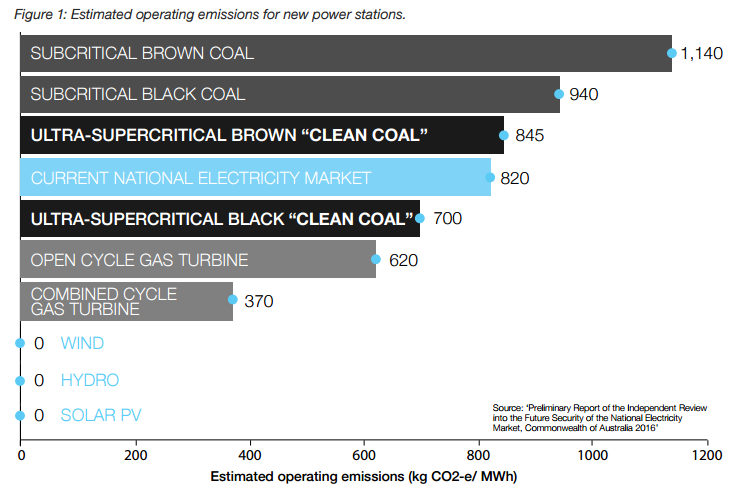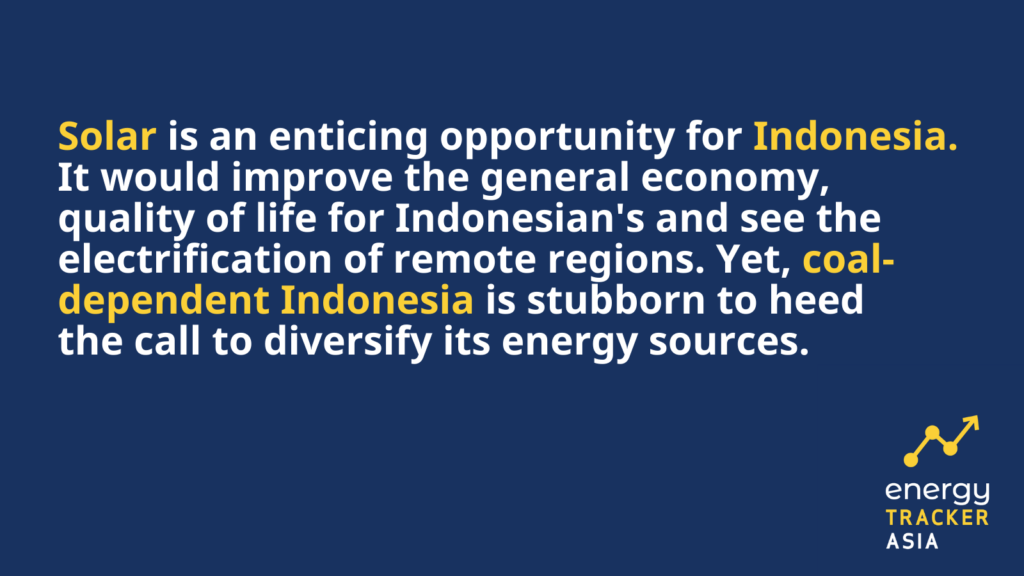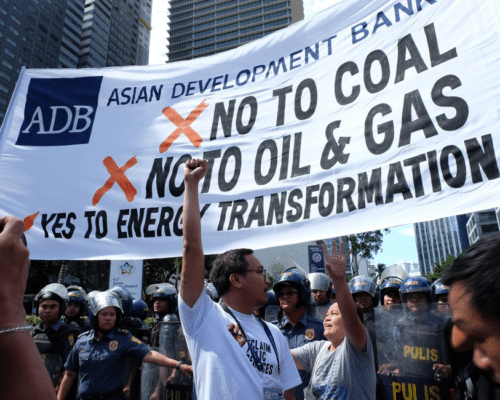Competing with Coal: Renewable Energy in Indonesia
Source: Project Multatuli
23 December 2021 – by Eric Koons
History is in the making for renewable energy in Indonesia. There has never been a more ambitious time across the globe to see carbon emissions drastically cut. Southeast Asian nations like Indonesia are in line with these ambitions, yet only making piecemeal steps. Indonesia announced its own renewable energy goal in the Electricity Procurement Plan (RUPTL) 2021-2030. The RUPTL is an annual plan setting out how the country expects to source its energy in the coming decade.
This year, the RUPTL paved the way to add 40.6 GW to Indonesia’s energy capacity by 2030, with two-thirds coming from renewable energy sources. Even with the renewable energy increases, the remaining one-third of energy will be produced by burning coal. This is perplexing, as renewables in Indonesia have become drastically cheaper, yet Jakarta plans to spend millions adding to coal capacity. According to Indonesian officials, the government intends to pair new coal power plants with carbon capture storage (CCS) technology, which will make the plant’s carbon emissions-free.

Rising Electricity Demand supplied by “Clean Coal”
Like many other nations, Indonesia relies on coal to grow its per capita income, electrify remote areas and stick to its mandate to curb carbon emissions in an attempt to kill four birds with one stone.
In particular, it finds inspiration from its coal-reliant neighbour Australia and decision-makers in Jakarta have embraced the concept of “clean coal”. Momentum for clean coal has been growing for decades. It had since gained more traction when former US President Donald Trump touted its use as a viable alternative to renewable energy. Endorsed also by Australia, clean coal has become a slogan for those clinging to polluting energy sources.
Relying on Carbon Capture
Clean coal is seen as a viable way for businesses and countries entrenched in fossil fuels. The concept relies on capturing carbon emissions and storing them underground, which has galvanised clean coal advocates. Yet, scepticism lingers about the technology’s efficiency, capacity to absorb carbon and prohibitive costs. On the other hand, renewables present a plethora of opportunities and benefits as opposed to questions.

Solar Remains a Viable Renewable Energy for Indonesia
In an article in The Conversation, Indonesian solar advocates Budi Prayogo Sunariyanto and Vivi Fitriyanti explain why Indonesia must prioritise solar as an essential energy source in the renewable energy transition. The advocates add that an emphasis on solar in Indonesia would be a way to ensure the electrification of even the remotest of areas. This would, they argue, boost productivity and support the government’s 2025 renewable energy target.
Solar is an enticing opportunity for Indonesia. It would improve the general economy, quality of life for Indonesians and see the electrification of remote regions. Yet, coal-dependent Indonesia is stubborn to heed the call to diversify its energy sources. In a world moving away from coal, fossil fuel assets will become stranded, pressuring Indonesia’s economy and ultimately slowing down progress.

COP26 Makes Indonesia’s Energy Strategy a Liability
During the COP26 climate conference in Glasgow, countries and financing bodies agreed to halt overseas coal power funding. However, Indonesia seems to be moving against this tide. This may leave it financially unattractive for foreign investment.
The country puts itself in a precarious position for its renewable ambitions without investments from foreign sources. “Indonesia has to be ambitious [in phasing out coal], but at the same time, we have to demand funding,” noted Fabby Tumiwa, the Executive Director at the Institute for Essential Services Reform, an Indonesian NGO.
Indonesia needs to correct its course. The country should begin planning its long-term strategy over short-term gains if its energy transition is to succeed. Can it meet the challenge?

by Eric Koons
Eric is a passionate environmental advocate that believes renewable energy is a key piece in meeting the world’s growing energy demands. He received an environmental science degree from the University of California and has worked to promote environmentally and socially sustainable practices since. Eric’s expertise extends across the environmental field, yet he maintains a strong focus on renewable energy. His work has been featured by leading environmental organizations, such as World Resources Institute and Hitachi ABB Power Grids.
Read more


